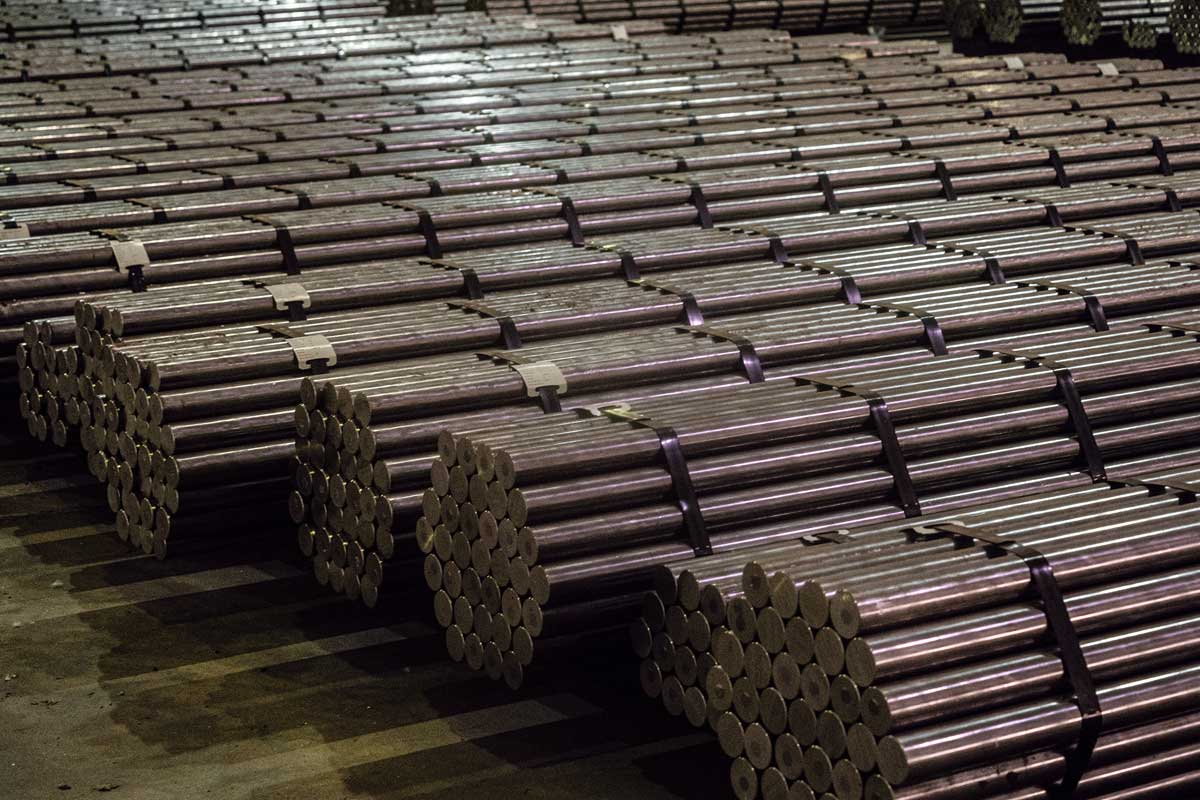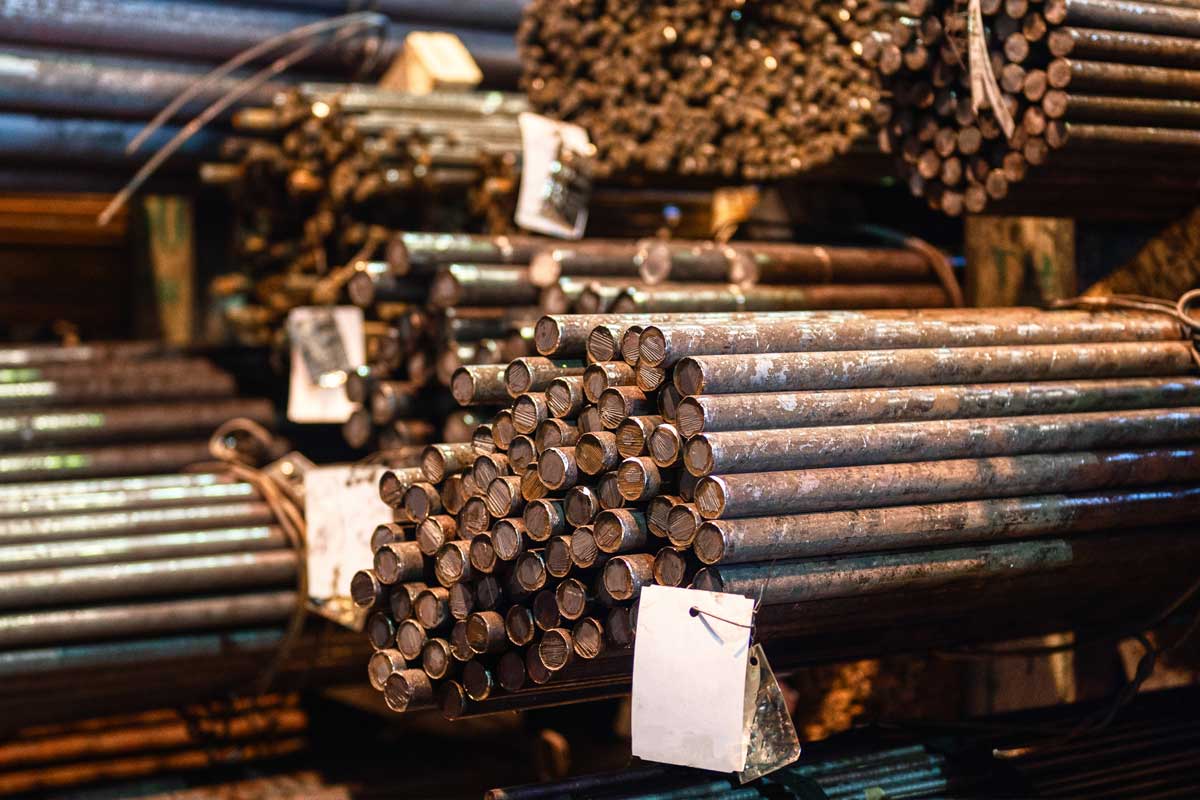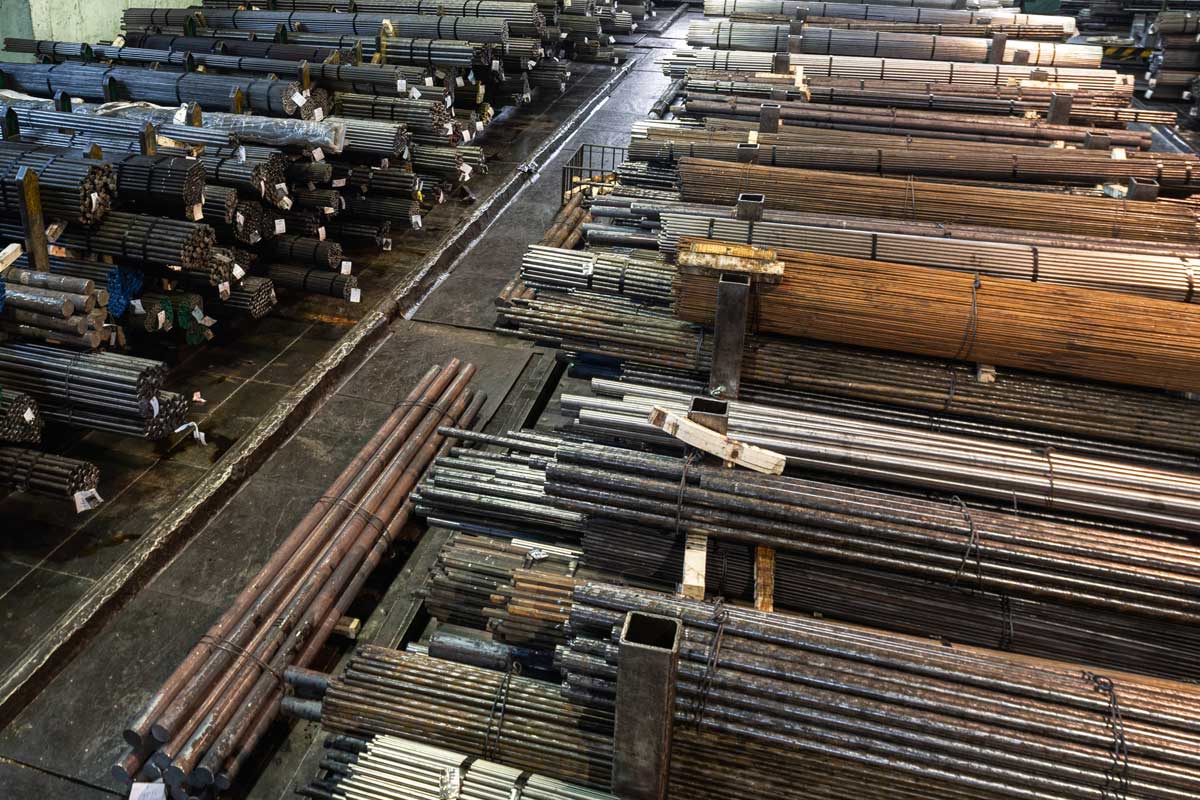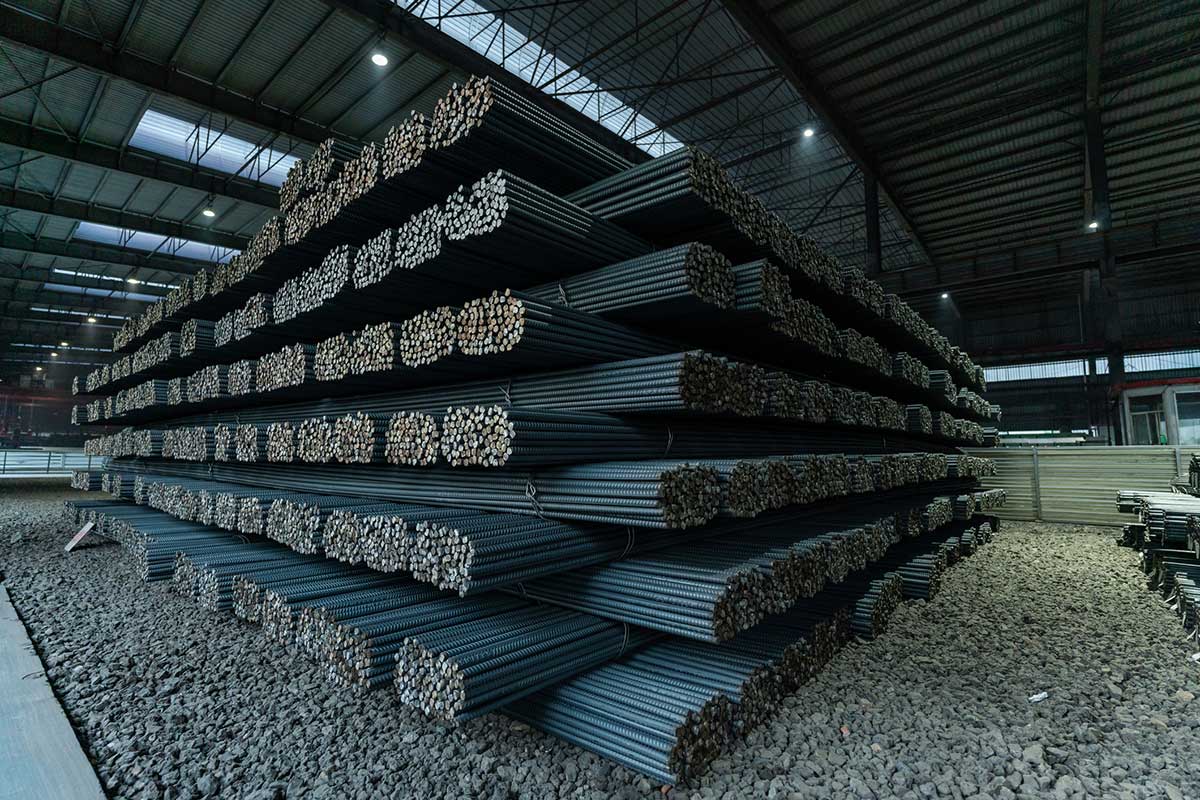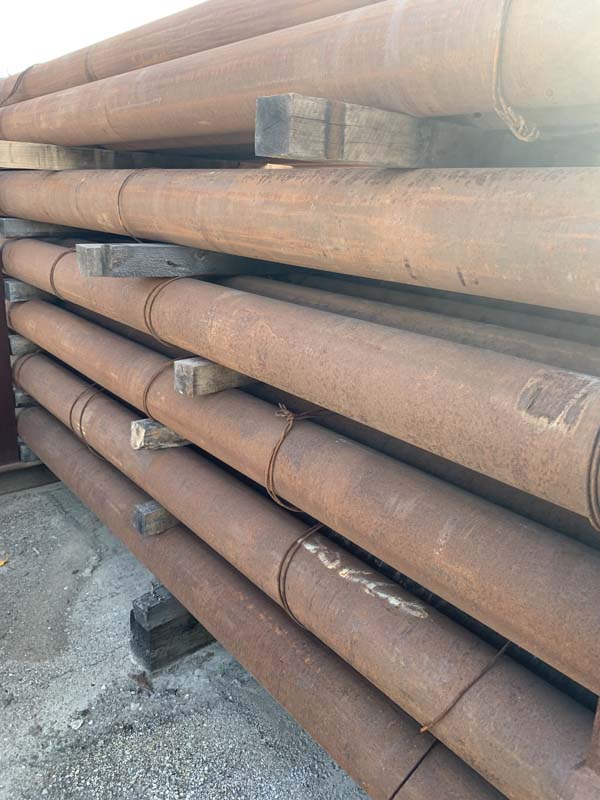Southwest Alloys Products
4130 Alloy Steel Round Bar is a highly versatile and durable material that belongs to the chromium-molybdenum (CrMo) steel family. It is renowned for its exceptional strength, toughness, and resistance to wear, fatigue, and impact. This alloy is composed of iron as the base metal, with specific additions of carbon, chromium, and molybdenum.
Metallurgically, the "41" refers to the nominal carbon content, indicating a carbon range of 0.28-0.33%. Adding chromium (0.80-1.10%) enhances the steel's hardenability, corrosion resistance, and oxidation resistance. Molybdenum (0.15-0.25%) further contributes to the alloy's strength and ability to withstand high temperatures, improve toughness, and resist corrosion.
Combining these elements in the 4130 Alloy Steel Round Bar results in a material with excellent mechanical properties. It exhibits high tensile strength, making it suitable for applications that require robustness and load-bearing capabilities. Its exceptional toughness allows it to withstand impacts and resist deformation, ensuring long-lasting performance under demanding conditions.
Furthermore, the 4130 Alloy Steel Round Bar offers favorable weldability, allowing for easy fabrication and assembly. It can be readily welded using common methods such as gas tungsten arc welding (GTAW/TIG) or gas metal arc welding (GMAW/MIG), making it versatile for various manufacturing processes.
Due to its remarkable properties, the 4130 Alloy Steel Round Bar finds wide-ranging applications across industries. In the aerospace sector, it is commonly used for aircraft components, including structural parts and landing gear. In the automotive industry, it is utilized for manufacturing gears, shafts, and suspension components. Additionally, it finds use in the oil and gas industry and general engineering applications that require high strength, durability, and resistance to wear.
4130 Alloy Steel Round Bar is a highly sought-after material renowned for its strength, toughness, and resistance to wear, fatigue, and impact. Its unique metallurgical composition, including carbon, chromium, and molybdenum, contributes to its exceptional properties, weldability, and versatility. Whether in aerospace, automotive, or general engineering, the 4130 Alloy Steel Round Bar is a reliable choice for applications that demand reliability, performance, and longevity.
4140 alloy is widely used in various industries for demanding applications. Let's delve into the metallurgy behind this remarkable material.
The 4140 alloy steel belongs to the chromium-molybdenum (CrMo) steel family, renowned for its excellent mechanical properties. It contains chromium (0.80-1.10%), molybdenum (0.15-0.25%), and a nominal carbon content of 0.38-0.43%. This composition contributes to the exceptional properties of the 4140 alloy.
The presence of chromium provides improved hardenability, wear resistance, and corrosion resistance to the 4140 alloy steel. It forms chromium carbides, which enhance the material's hardness and resistance to wear and abrasion. Additionally, chromium promotes the formation of a protective oxide layer, offering corrosion resistance in various environments.
Including molybdenum in the 4140 alloy steel enhances its strength and toughness. Molybdenum forms hard carbides, improving the alloy's resistance to deformation and making it ideal for applications requiring high strength and impact resistance. Furthermore, molybdenum contributes to the alloy's ability to withstand high temperatures, making it suitable for elevated-temperature applications.
The carbon content in the 4140 alloy steel plays a crucial role in its mechanical properties. It provides strength and hardness to the material through the formation of carbides during heat treatment. The controlled carbon content ensures an optimal balance between hardness and machinability, allowing for easy fabrication and machining.
Due to its exceptional properties, the 4140 alloy steel finds applications in various industries, including aerospace, automotive, oil and gas, and machinery manufacturing. It is commonly used to produce critical components such as shafts, gears, bolts, and structural parts that require high strength, toughness, and wear resistance.
4340 is a high-strength alloy steel known for its excellent mechanical properties and versatility. It falls under the nickel-chromium-molybdenum (Ni-Cr-Mo) steels and is widely used in applications requiring high tensile strength, toughness, and fatigue resistance.
Metallurgy plays a significant role in defining the properties of 4340 alloy steel. The alloy consists of iron as the base metal, with significant additions of nickel, chromium, and molybdenum. The specific composition typically includes approximately 0.40-0.60% carbon, 0.70-0.90% manganese, 0.20-0.35% silicon, 1.65-2.00% nickel, 0.70-0.90% chromium, 0.20-0.30% molybdenum, and trace amounts of other elements.
Adding nickel enhances the toughness and impact resistance of 4340 steel, making it suitable for applications subject to high stress and load conditions. Chromium contributes to the steel's hardenability, wear, and corrosion resistance. Molybdenum improves the steel's strength and high-temperature stability, allowing it to withstand elevated temperatures without significantly losing mechanical properties.
4340 alloy steel is typically heat-treated to achieve the desired mechanical properties. Heat treatment involves quenching and tempering to optimize strength, hardness, and toughness. The steel can be readily machined, but its high carbon content may result in some challenges during machining. Therefore, proper machining techniques and tools are essential for achieving precise and accurate results.
The versatility of 4340 alloy steel makes it suitable for various applications across different industries. It is commonly used in aerospace, automotive, oil and gas, and machinery manufacturing. Some typical applications include aircraft components, gears, shafts, crankshafts, connecting rods, and structural parts subjected to high stress and fatigue.
4330 Alloy Steel is a high-strength, low-alloy steel known for its excellent combination of strength, toughness, and wear resistance. It falls under the category of nickel-chromium-molybdenum (Ni-Cr-Mo) steels, which are commonly used in demanding applications where high strength and good impact resistance are required.
The metallurgical composition of 4330 Alloy Steel includes nickel, chromium, and molybdenum as key alloying elements. It typically contains approximately 1.65-2.00% nickel, 0.70-0.90% chromium, and 0.30-0.50% molybdenum. These alloying elements contribute to the steel's exceptional mechanical properties and enhance its overall performance.
The presence of nickel in 4330 Alloy Steel increases hardenability, allowing for effective heat treatment and high strength levels. Nickel also improves toughness and impact resistance, making it suitable for applications subjected to heavy loads and high-stress conditions.
Chromium is added to enhance the steel's corrosion resistance and wear resistance. It forms a protective oxide layer on the surface of the steel, increasing its resistance to oxidation and preventing corrosion in various environments.
Molybdenum contributes to the steel's strength by promoting the formation of fine-grained microstructures during heat treatment. It also enhances hardenability and improves the steel's resistance to pitting, crevice corrosion, and fatigue, making it suitable for challenging conditions.
4330 Alloy Steel is commonly used in applications requiring high strength, such as aerospace components, oil and gas drilling equipment, power transmission gears, and structural parts subjected to heavy loads. It is often utilized in normalized and tempered or quenched and tempered conditions, depending on the application's specific requirements.
With its exceptional strength, toughness, and wear resistance, 4330 Alloy Steel is a reliable choice for critical applications where durability and performance are paramount.

